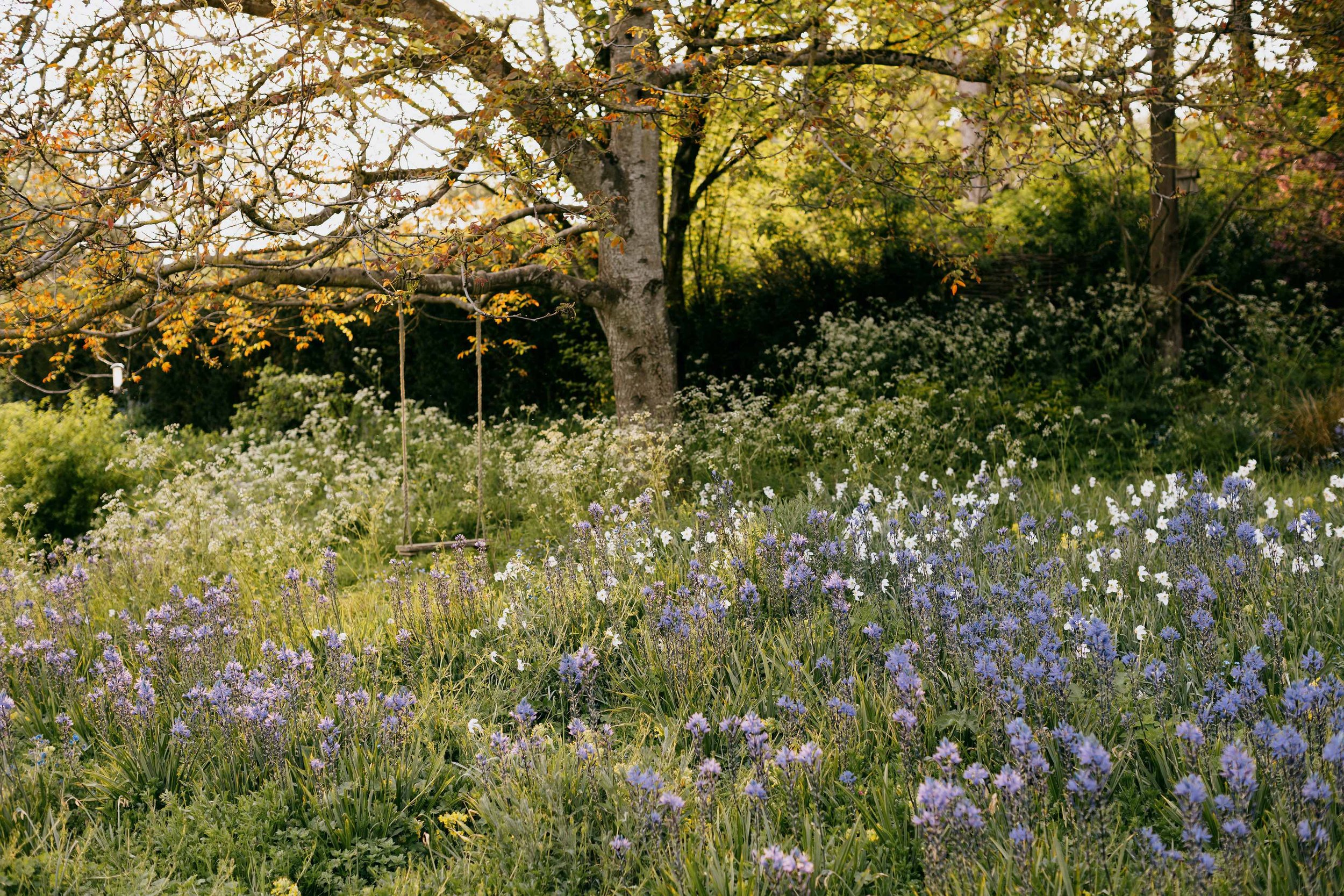Phacelia Cover Crop at Damson Farm Photo: Eva Nemeth
Spring Meadow at Church Farm Photo: Andrew Maybury
Regenerative Gardening
with Jo Mckerr and Alison Jenkins
Friday 7 June 2024
10 - 4pm (Arrive at 9.30 for coffee/tea)
£120.00
Group Size - 10 people
Many terms are currently being used to describe an approach to gardening that takes its cues from the natural world - ecological, sustainable, organic, re-wilding, permaculture and nature led are just a few. We will spend the day unpicking what these terms really mean and how you might apply them in your own garden.
We will start where it all begins, with the soil. What is it, how does it function as a living ecosystem and how to work with what you have rather than fight against it. Moving on from there we will have a look at plant succession, plant ecology and what we mean by plant communities. We’ll explore how to build a framework that works towards managing the garden for both human and wildlife benefit.
We’ll be spending the morning at Damson Farm before heading over to Jo’s garden at Church Farm in Wellow after lunch. Although we share a similar outlook, we garden with a different emphasis and work with different soil conditions so our intention is to show you how you might use regenerative principles in a number of ways.
Jo describes Church Farm as a post industrial brown field site which features the remains of a railway line, canal tunnel and much smashed up concrete under impoverished soil. She cultivates her garden with a gentle hand, where the planting is managed to produce a landscape that evokes an aesthetic ‘nature’ and is better adapted to its environment, encouraging biodiversity, restoring habitat and rekindling natural processes. Her garden features a large wildlife pond, a drought tolerant gravel garden and meadow planting and demonstrates that it’s possible to grow not just resilient gardens but regenerative ones.
Damson Farm is on the edge of the Cotswold Hills in a valley once full of market gardens and orchards. It sits predominantly on rich clay loam and has several springs running through it. Alison practiced as a garden designer for many years before going on to study permaculture. She’s exploring how to bring these disciplines together by creating edible gardens that are not only beautiful and immersive but have a positive ecological impact and put food on the table. She believes that growing our own, in whatever form that takes is a step towards self reliance and an enriched engagement with the natural world.

